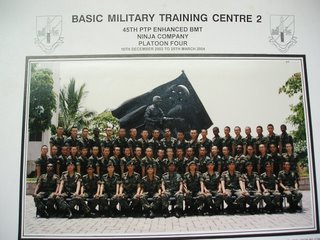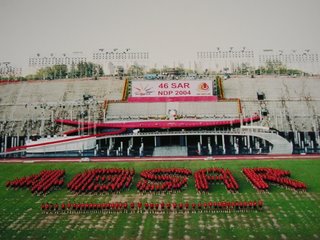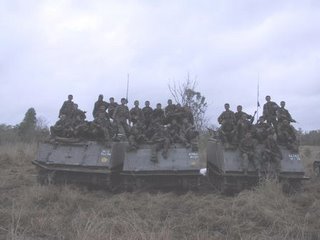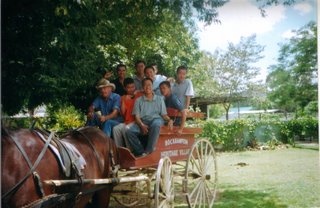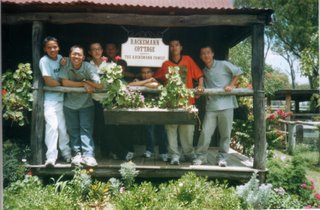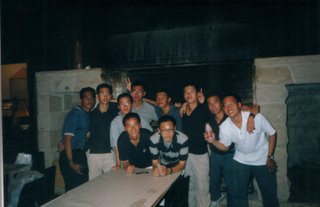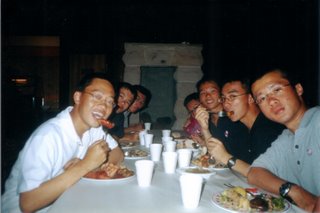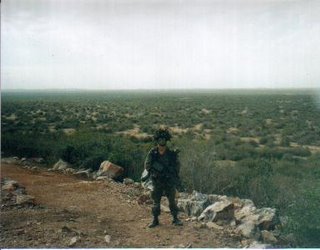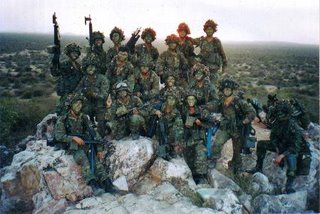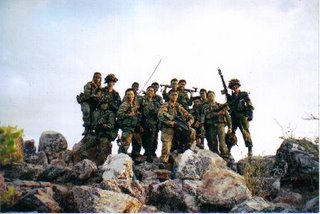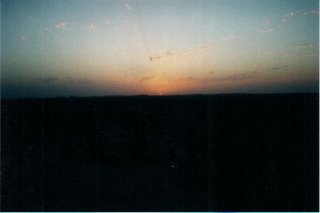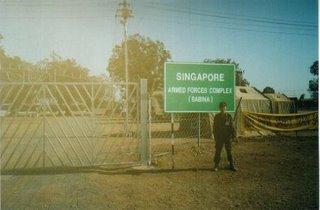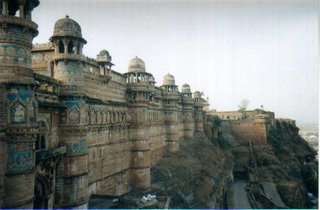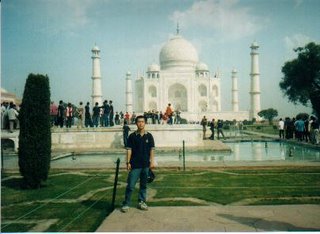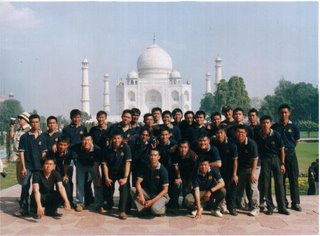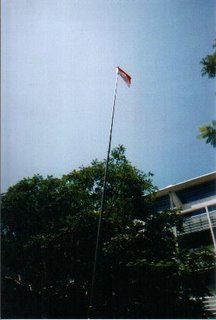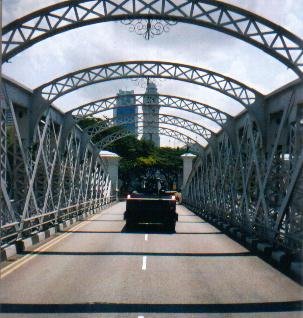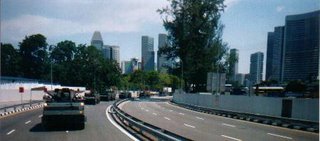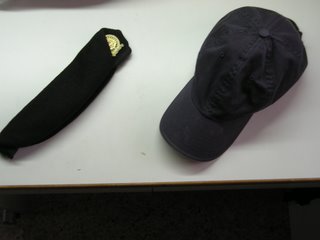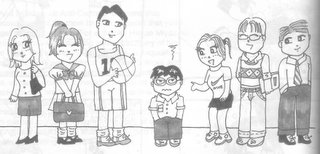Post No. 64: What Use, History?
These are the questions that I, as an avid student of History, would be addressing in this essay of mine and hopefully, provide the answers to. The answers that I suggest later on may perhaps appear clichéd and/or obvious to you all. However, sometimes, we need to be reminded of such answers lest, in the hustle and bustle of everyday life, we allow ourselves to forget them.
And, oh yes, to those whose experience with the study of History is limited only to the secondary school level, allow me to inform you all that History goes beyond the memorisation of dates and events. Of course, I would not deny that at the lower levels of studying History, greater emphasis is placed on such memorisation from textbooks. However, I would argue that this memorisation serves only as the foundation to the study of History at more advanced levels in which it is much more intellectually stimulating and challenging. Anyway, in case you all have not realised it yet, the study of any academic subject would involve some form of memorisation of concepts, definitions and formulae at the beginning. Okay now, I would not test the patience of you all any further but move on to the discussion proper.
To me, we study History so that we can understand the present. Perhaps I am over-generalising but it is my opinion that most, if not all, recent developments have their roots in historical developments. As astutely pointed out by “Morpheus” in “The Matrix: Reloaded”, we humans are what we are today not because of the path ahead of us but because of the path that lies behind us. I mean, if we have no knowledge of History, we will not understand why Japan has a “No War” clause in its constitution or why the denial of the Holocaust is a crime in countries such as Austria, France, Germany and Israel (amongst other countries). Neither will we be able to comprehend the rivalry between India & Pakistan nor can we hope to understand the intense dispute between Israel and the Palestinians. In fact, if we are not aware of the history of the Jews and of the sufferings they had to go through, we will not be able to understand why they are so fervent about having a homeland to call their own. If these examples that I have discussed seem too distant or abstract to you all, then allow me to put forth some more localised examples. For example, if we have no knowledge about the Anglo-Dutch Treaty of 1824 which placed Singapore within the British sphere of influence instead of in the Dutch’s, we would not understand why our lingua franca is English and not Dutch. Also, if we have no knowledge about the historical baggage that Singapore and Malaysia have between them, we would not comprehend the “on & off” rivalry in their bilateral ties. Neither will we be able to grasp the meaning behind SM Goh’s (or was it MM Lee’s? I really can’t remember) statement of: “Some countries are born with independence, some achieve independence and some have independence thrust upon them” (by the way, FYI, this was a paraphrase of a line from Shakespeare’s “Twelfth Night”). Do not be mistaken, I am not suggesting that History can explain everything and anything but that it provides an important tool with which we can understand the world around us today; a tool which we will be poorer without. In that, History of use to us.
In addition, besides enabling us to understand the present, studying of the past may perhaps allow us to attempt to predict the future. By this, I mean that when studying historical case studies, we may be able to detect some similarities between what have happened in the past and what is happening now and thus project what the future could possibly be like. For example, when studying historical case studies such as the French Revolution of 1789 (which was supposedly inspired by the American Revolution of 1776) and the Russian Revolution of 1917, it can be identified that when extreme inequality manifests itself within a country, it could lead to much political upheaval in that country. Hence, if today, we detect the signs of extreme inequality within a certain country, it is most likely that observers would predict some form of political upheaval in the future of that country. In other words, History serves as a crystal ball which we look into the past to see the future.
However, I must point out to you all that there is a limitation to how effectively we can use the past to predict the future. For, as astutely pointed out in this Arab proverb of: “The man who speaks about the future lies even when he tells the truth”, the future is and will remain an unknown to all of us; none of us can ever predict what the future will be like with 100% accuracy, we can only guess at it. Yes, while some things may never change, it is still a changed world we are living in today. No matter how many similarities we can identify between the past and the present, things cannot be totally the same for there will be that, however small, element of difference. Using the past to predict the future does not work like a linear equation (If X, then Y) but more like a non-linear equation (IF X, then maybe Y) with a countless number of possible variations. I mean, even if I manage to travel to the future in a time-machine and see what it is like, it will be a different future once I come back to the present to tell others what the future will be like for there is now the additional variation of some of us knowing the future, get what I mean? Hence, while History serves as a crystal ball which we look into the past to see the future, the picture of the future we get to see is an incomplete one shrouded in fog. The future, I believe, is not made yet but is in the making.
Moving on, I would put forth to you all the suggestion that History roots us to a place and thereby serves as a nation-building tool. There are, in my opinion, many “building blocks” that a nation can be built on. These include a set of defined geographical boundaries, a common ethnicity, a common culture & language, a common ideology or a common set of ideals and a common heritage, that is a common history. In short, History can be employed to instill a sense of belonging/ownership and to foster an emotional bond in the citizens of a country to the country they reside in. of course, it does not hurt if these citizens also have a physical stake and have a sense of political ownership in their country. I suppose that, with its current drive to instill a stronger sense of history in Singaporeans, the Singaporean government is acutely aware of how History can be employed to create a sense of “rootedness” in people. To keep a long story short, through having a strong sense of common history, we will feel closer to our country than if we were to have no awareness of our country’s history. History is the “anchor” that anchors us to our country.
Yet, that said, I must also say that I have my doubts about how successful Singapore’s current drive to instill a stronger of history in us Singaporeans will be. Perhaps I’m being too pessimistic but it is my observation that most Singaporeans lack an interest in local history, thinking that they already know all about it through National Education lessons (oh, if only they knew how much they don’t know) and being too busy with the hustle and bustle of everyday life (why bother about the past when the present is so exciting?). Also, it is my opinion that the current curiousity about local history is somewhat a knee-jerk response to the recent death of Mr. S. Rajanatnam, one of the founding fathers of independent Singapore; a curiousity which will soon perhaps burn out after an initial intensity (and revived again with the next death of another eminent local founding father?). Well, I hope that I’m just being too pessimistic and cynical and this current drive to create greater awareness of local history in us Singaporeans would not turn into a case of “too little and too late”. For the sake of Singapore’s future, I sincerely hope not.
Okay now, after having waxing lyrically about how History can be useful to us, I will now move on to discuss the limitations of the study of History.
I don’t know about you all but it is my observation that in the study of History, most of us have the tendency to criticise the decisions of past leaders (or current leaders’ past decisions), saying: “G (a former leader of a country) is so dumb! Doesn’t he know that by restructuring the economy and opening up the political scene of his country would have lead to his own downfall?” or “Yes, X’s decision to do this was a good decision but it would have been better if he had done this instead”. In other words, armed with hindsight, we tend to second-guess the decisions made by historical figures (in Chinese, this tendency is aptly labeled as “马后炮” or “事后孔明”). Seldom do we realise that when they are making their decisions, these historical figures do not have perfect information or the hindsight that we have today. Also, we must not forget that the circumstances that these historical figures faced are unique and it would be near to impossible for us to replicate such circumstances & place ourselves in their shoes. Allow me to cite this example: do you all think if Hitler knew in 1933 that his policies would lead to his suicide and Germany being occupied & divided into 2 by foreign nations, he would still continue to implement his policies? Remember, what would only require a little bit of hindsight on our part would usually require perfect foresight on the part of historical figures.
“What is history, but a fable agreed upon?”, Napoleon once said. And there is much truth in this statement of his because as much as we would like to deny it, History, in the form we study it today, is most usually “victors’ history”. Often, victors are glorified as heroes while the losers are vilified as villains. In fact, there is a Chinese saying which aptly describes such a situation: “胜者为王,败者为寇” (for the benefit of those who don’t understand Mandarin, this means “the victor becomes the king while the defeated becomes the bandit”). Just imagine, if it was not the Allies which won WWII but the Axis Powers, perhaps the war criminals we study in History textbooks today would not be Tojo, Hitler and Mussolini but instead would be Roosevelt, Truman and Churchill. Imagine also that if the Soviet Union had not lose the Cold War but had instead won it, maybe instead of praising liberal democracy as “the cure for all political ills”, we would be giving that praise to Communism. Furthermore, to borrow the words of George Orwell (for those who don’t know yet, “George Orwell” is just a pseudonym, his real name was Eric Blair): “He who controls the present, controls the past”. In other words, sometimes, History may be manipulated to suit & advance the political agenda of today. An excellent example of this would be the recent re-evaluation of 施琅 (Shi Lang)’s position in China’s history. In the past, Shi Lang’s conquest of Taiwan, which was then under the control of 郑成功 (Zheng Cheng Gong) whom was a general under the Ming Dynasty (whose rulers were Han Chinese), was seen as a traitorous act as he was perceived helping the Qing Dynasty whose rulers were not Han Chinese but were Manchus. However, recently, there seems to be a covert move to re-evaluate Shi Lang’s conquest of Taiwan as a crucial step in the preservation of China’s territorial integrity. Sounds strangely familiar, don’t they, the words in italics?
Don’t be mistaken. Alternative views of history (that is, “losers’ history”) nonetheless still exist. However, as these alternative versions of history are usually labeled as “unofficial”, they do not receive as much support from the authorities or get propagated very much, thus resulting in them not being well-known by the general public, in comparison with the “official” version of history. Even when the “losers” of history come up with their versions of history, they are usually criticised as attempting to whitewash their past. An example of this would be the release of Chin Peng’s, the leader of the Malayan Communist Party during its insurgency, quasi-memoirs: “Alias Chin Peng: My Side of History” a few years back. Well, I suppose that although what we study as History today may not be the complete story, it is nevertheless still part of the whole story. Knowing part of the whole story is better than not knowing the story at all, isn’t it?
Furthermore, it should be noted that, similar to other subjects grouped under the Arts, Social Sciences & Humanities umbrella, the study of History is at times subjected to personal prejudices & biases. In other words, what we get out of History sometimes depends on what we want to get out of it. This is akin to the situation in which political philosophers study the natural world to derive an answer to what human nature is like and therefore, how the political system should be organised. Those who favour a system which is more cooperative would most likely point to cooperative behaviour amongst animals in the natural world while those whom prefer a more competitive system would, on the other hand, emphasise the significant level of competitiveness in the natural world. Hence, those historians pessimistic in nature would no doubt cite the history of wars, political manipulation & killings, irrationality and hatred while more optimistic historians would talk about historical examples in which good triumphs over evil in the long run. History can be used to support all sorts of arguments, it just depends on how you interpret it.
